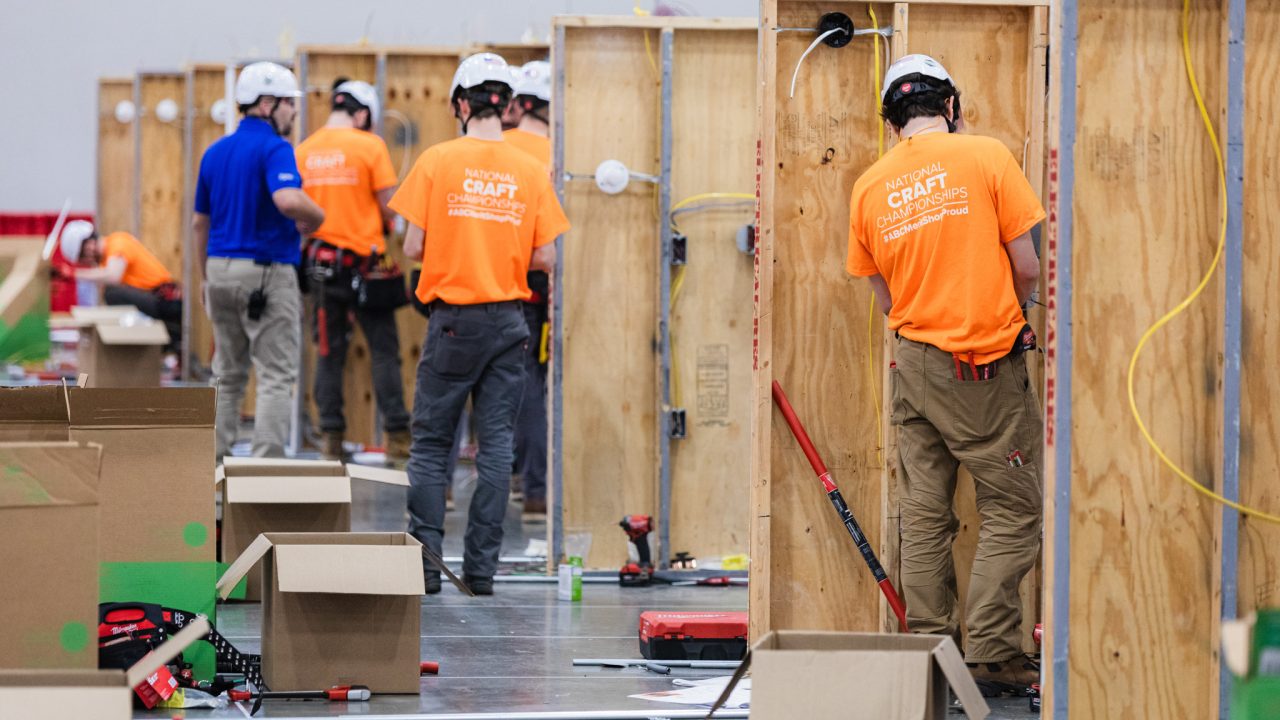To effectively delegate when urgent issues arise, contractors and subcontractors need to know their teams’ capabilities well ahead of the crisis, rather than when the need arises. This requires an ongoing, disciplined approach to knowing and shaping the team according to each individual’s ability, performance and potential.
Today’s contractors face two constant pressures: time and productivity. The very nature of the construction industry is bound by these two pressures. There’s a daily challenge to do more with available resources (productivity) and to do so within project deadlines (time).
Do other industries face these same pressures, yet achieve much better results? As a matter of fact, there are. Studies show that the manufacturing industry has nearly doubled its productivity since the mid-90s (while the construction industry saw no improvement).
In large part, manufacturing’s improvement is due to its dedication to improving resource efficiency over time—to truly understand each component of production (raw materials, machines, outputs and, most importantly, people), and then leveraging each component to optimal capacity as a cohesive unit. Compare this to the common productivity mindset of construction, where production components are viewed, and adjusted, mostly through a “per-project” lens (small picture versus big picture).
So how can the construction industry adopt a productivity philosophy that yields the same success as the manufacturing philosophy? Specifically, how can it commit to truly incremental improvement over time?
One highly effective strategy is time-effective delegation. Simply put, this means becoming a “student” of human behavior and, more precisely, a team’s behavior. This requires a dedication, over time, to knowing and understanding how each team member ticks—the same way a tire plant studies the capacity of each machine over time and then (and only then) designs optimal workflow to match production targets.
Once the contractor knows how each of its people ticks, it can better leverage the skill sets (capacity) of its staff, thereby increasing productivity by reducing waste in time and materials (and providing more fulfilling career paths along the way).
So rather than waiting until the moment of pressure or need arises, time-effective delegation requires contractors to know their teams’ capabilities well ahead of the pressure point of need.
This is done in two simple steps.
First, develop an ongoing, disciplined approach to knowing and shaping project teams according to their performance and their potential. A simple, yet highly effective, tool to use for this is called Getting To Know My People (GTKMP). With this tool, the objective is to learn and discover the answers to several key questions about each member on the team.
- What are their strengths?
- What are their weaknesses?
- What motivates them?
- What are their goals (personal and professional)?
- What are their likes and dislikes?
Once the contractor uncovers these answers, they’ve developed a “personal profile” on each team member (including themselves) that includes their strengths, their weaknesses and their capabilities.
Too often, managers rely on psychological profiling tests for these insights. While these are helpful tools, profiles should act as a supplement to what the manager ascertains through active listening and observation about his or her team. Psychological profiles should be confirmation, not revelation.
This leads to the second step.
What is the one driving force that causes all humans to over-estimate or under-estimate capabilities? The answer is bias, which is driven by emotion. Biases almost always lead to poor project management decisions, which then result in wasted time and productivity.
With the natural tendency toward bias in mind, the GTKMP tool more effectively helps drive logic-based decision-making, versus decisions influenced by bias (or emotion). The GTKMP tool bridles the emotional elements that often cloud decision-making about key people.
To use the GTKMP tool most effectively and delegate without bias, uncover the answers to the aforementioned five questions about each team member through observation and listening over six to nine months, versus directly asking (or assuming) within hours and days. Even if a team member answers these questions, one’s biases will affect the interpretation of the answers. The only way to counteract bias is to observe and listen over time, rather than assessing in a single instance.
Learning the answers to the GTKMP questions over time causes the contractor to trust, which neutralizes emotions, which then leads to better delegation, especially when time and productivity are critical. This is why people often trust those they’ve worked with for a long time versus newer team members. Over time, they’ve become much more familiar with them and their strengths and weaknesses, in spite of historical biases or assumptions.
Time-effective delegation comes from stronger bonds and trust with teams. The GTKMP tool effectively starts the process that builds that trust.






